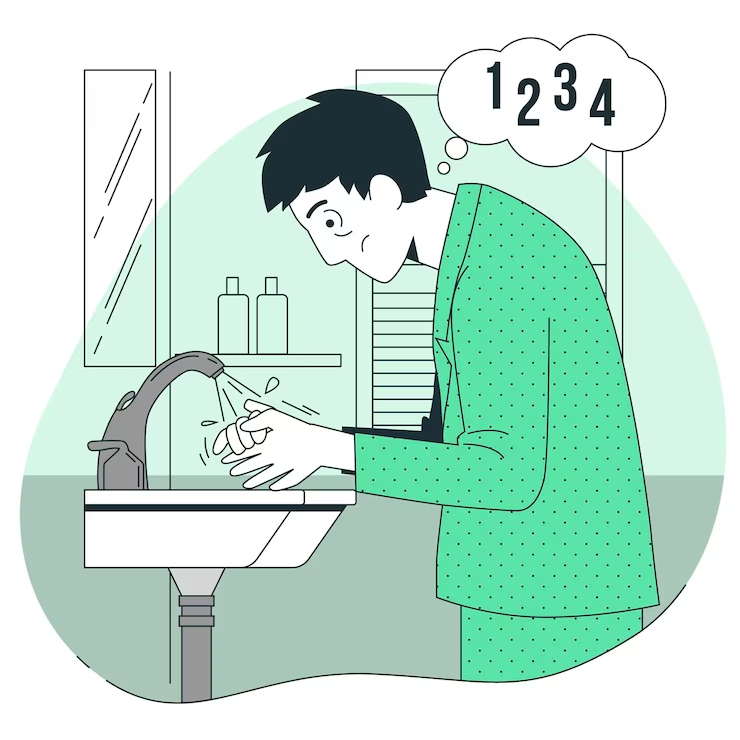What is OCD?
While everyone has occasional obsessive thoughts and follows specific routines, OCD is a type of anxiety disorder that causes unwanted, obsessive thoughts and compulsive behaviors that interfere with your ability to function. If you have OCD, your thoughts are incredibly distressing. Your compulsions offer some temporary relief, although if you’re unable to complete your compulsive behaviors or rituals, you may become even more distressed.

What’s the difference between obsessions and compulsions?
Obsessions are intrusive and distressing thoughts. Some common obsessions include:
- Cleanliness and fears of contamination
- An intense need for order and accuracy
- Aggressive thoughts about harming yourself or others
- Forbidden sexual thoughts
- Religious preoccupation
- Shortness of breath
Compulsions, on the other hand, are the behaviors and rituals that temporarily soothe your obsessions and related fear and anxiety. For example, if your obsessions focus on cleanliness, you may compulsively clean your home or your body to the point where your skin is irritated or damaged. Other common compulsions include:
- Counting
- Checking that you’ve completed a task, like turning off a light or appliance
- Touching
- Repeating words or phrases silently or aloud
- Following a strict routine
- Constantly seeking reassurance
If your OCD symptoms interfere with your ability to function at work or school, or disrupt your relationships, make an appointment with Point of View Mental Health.
How is OCD treated?
Point of ViewMental Health offers highly customized treatments to help you manage your OCD. We begin with a comprehensive assessment of your mental and physical health to develop a detailed understanding of your condition, including your obsessive thoughts and compulsive behaviors.
We work with you to implement a multidisciplinary treatment plan that may include medication, meditation, and lifestyle modifications to address your symptoms and improve your overall wellness.
We may also recommend therapy to allow you to explore the thoughts and feelings that contribute to your OCD symptoms. During therapy, you’ll learn to recognize your obsessive thoughts and adjust the way you respond to them. For example, you may practice different coping techniques to deal with your obsessive thoughts in ways that don’t disrupt your health and well-being.
If you live with OCD, call Point of View Mental Health or schedule an appointment online to get relief from your symptoms today.
Your Path to Mental Wellbeing Starts Here.
Don’t hesitate to send us message.
Point of View Mental Health, LLC
9375 E Shea Blvd., Suite 100
Scottsdale, AZ 85260
- Phone: 602-834-3767
- Email: thomas@pointofviewmentalhealth.com
Office Hours
Monday-Firday: 9:00am - 4:00pm
Serving Scottsdale, Phoenix, Tempe, Flagstaff.
Telemedicine in the entire state of Arizona

